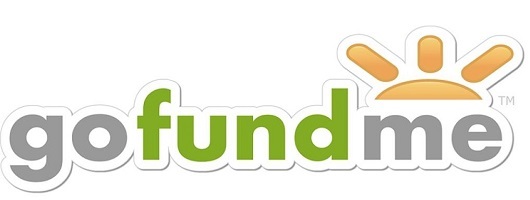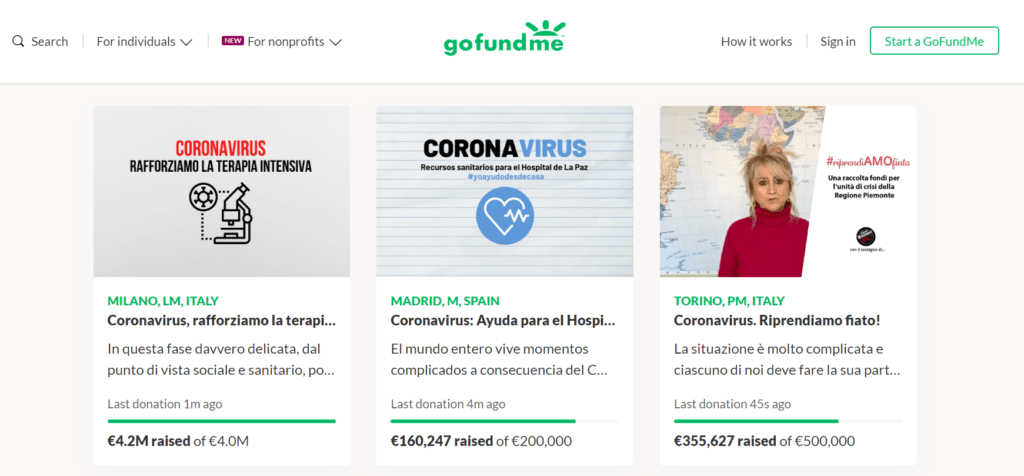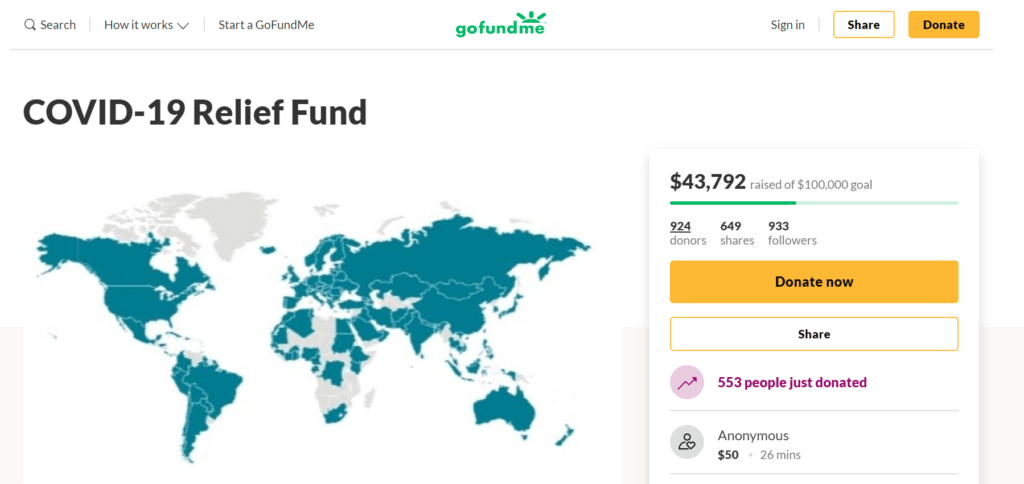Go-Fund Me: Free fundraising for the people and causes you care about

When it comes to leveraging crowdsourcing and the power of community building no one does it better than Go-Fund Me, a free social fundraising company out of California. With a unique value proposition and transparent business model, the mission at Go-Fund Me is one that is smart, simple and safe.
‘We empower both individuals and nonprofits to turn compassion into action.’– Go-Fund Me Mission Statement1
With an intense focus on creating the giving layer of the internet, Go-Fund Me has opened numerous opportunities to support various causes, organizations, and individuals, while conversely providing an easy to use platform for anyone to create their fundraising campaigns. Since the launch in 2010, Go-Fund Me has rapidly grown into the world’s largest free social fundraising platform ‘with over $9 billion raised from more than 120 million donations1.’
Value Creation:
At the core, Go-Fund Me is a matching service acting as an intermediary between potential donors and recipients providing both parties a platform to interact and transact according to the areas of interest. To be successful in this space, Go-Fund Me quickly realized the importance of developing a deep sense of trust and accountability on both sides of the platform.
As a result, the internally established Trust & Safety teams work to protect donors against fraud through mechanisms like a donor protection guarantee, which refunds donations if something is off with the recipients’ campaign2. Likewise, as a beneficiary, if there is a campaign established on their behalf and the organizer fails to deliver any of the funds Go-Fund Me will donate the difference2. Therefore, Go-Fund Me is focused on establishing trust, sense of community, and transparency across both sides of the marketplace which in turn encourages repeat donations and campaign creation.
Go-Fund Me leverages crowdfunding and social networks to break down barriers between those in need of funds and those available to help them, by making these connections happen seamlessly across platforms. By allowing campaign creators and supporters to share the programs which they are passionate about with their communities, this will reinforce a sense of trust and validity to both the platform and campaign. As a result, these campaigns which traditionally would have reached a handful of individuals can indeed be engaged with by the masses cutting across social networks.
Value Capture:
Given the market size of annual donations to US charities of ~$390B3, Go-Fund Me has a massive opportunity to help facilitate more targeted safe transactions between parties and the ability to create new campaigns conveniently. Therefore, Go-Fund Me has strategically positioned itself to be a key player in this space by making it easy for campaign creators using templates for a medical, memorial, emergency, nonprofit and education fundraising activities.
With the end goal in mind, of creating a supportive community that funds the missions and programs that consumers are passionate about, Go-Fund Me has deployed a unique revenue model with 0% commission or platform fees but rather asks donors to leave a voluntary tip. While competitors charge fees in the range of 5-10% of donations, Go-Fund Me stands by their promise of helping campaigns keep more of the money that they raise4.
Although Go-Fund Me does not charge donors a platform fee they do however charge ‘recipients a standard processing fee (2.9% + $.30 per transaction), which are deducted from the donation total.
Platform Scalability:
As the leader in online fundraising, Go-Fund Me is well-positioned to continue to grow market (donation) share domestically and globally through the robust set of platform capabilities including donor protection guarantee, simple setup, 0% platform fee, social reach, and mobile app. However, as donations historically trend at 2% of GDP and are right side-skewed with a significant amount of donations given as a one-time large sum, I believe the speed by which Go-Fund Me can grow is capped. Besides, most donations are recurring on a monthly or annual basis to charities, religious institutions, home offices and non-profits, which therefore requires a change in the fundamental business model to capture a piece of these transactions.
Platform Sustainability:
As a result, Go-Fund Me has developed an offering under it’s ‘Go-Fund Me Charity’ banner which allows charities to take back control of their fundraising efforts. This robust offering enables charities to own their fundraising data, control their brands through tailor-made content, and engage more donors through social fundraising as an attempt to become the ‘one-stop’ shop for these organizations when it comes to fundraising and donor management5.
Likewise, as Go-Fund Me turns its attention to global expansion it will have to reformulate the business model given the different donation behaviors across cultures and regions. I believe that Go-Fund Me will be successful in its endeavor to develop this platform into a global fundraising mechanism as it has already shown an ability to adapt to changing consumer needs through the Go-Fund Me Charity offering.
Now more than ever, with the rapidly evolving COVID-19 pandemic, we need platforms like these to connect donors to causes they care about and quickly provide money to those in need.
Sources:
1 https://www.gofundme.com/c/about-us
2 https://www.gofundme.com/c/safety/gofundme-guarantee
3 https://givingusa.org/giving-usa-2017-total-charitable-donations-rise-to-new-high-of-390-05-billion/





Love the pandemic reference in the end of it. The difference between gofundme and other ways/institutions of donation is the trust that they have managed to build. I remember myself always being skeptical to donate in any website but gofundme.
Some potential business models in order to scale is to get recurring revenue from partnering with all the charity institutions. The small ones are probably easier to convince to jump in the platform because their trust will increase and they will be able to reach more people. But the big ones are probably old and traditional and could potentially benefit of a new tech company with data capabilities.
Another way is for the company to actually getting involved itself in charity. COVID-19 pandemic is a great way for the company itself to create funds and then disperse them according to needs. This is outside of their expertise now but it can be build.
Great article! Gofundme is a perfect example of a marketplace platform. On paper, it is an ideal way to match demand and supply efficiently regardless of geography. You brought up the issue with trust, which is always such a difficult piece to get right. But for a market place, it is crucial. If I were an early investor, this would have been my biggest concern – a handful of bad press could spell the end of a market place that deals with peoples’ money and charitable causes. However, they have smartly taken a hard line by fully reimbursing affected parties. I think another challenging issue is curating the use cases for Gofundme. I believe that recently they banned using the platform for raising legal defenses. I wonder if this could become a slippery slope that could get in the way of scale. Facebook has made a concerted effort to keep the boundaries as low as possible for this very reason – once you start building constraints, the complexities start to scale with the growth.
Interesting article! GoFundMe is such a cool example of how technology can enable expression of human empathy and compassion. It’s wonderful to see people donating to causes both locally as well as in places on the other side of the world!
I wonder if GoFundMe’s trust-building mechanism, which is one of their biggest strengths, will in fact be one of their biggest obstacles for them to scale. How does the Trust and Safety team actually verify potential fraud? In particular, if the money being raised is for personal use without going through an official organization or group of people, I would imagine that this could become a time-consuming and expensive process to check.